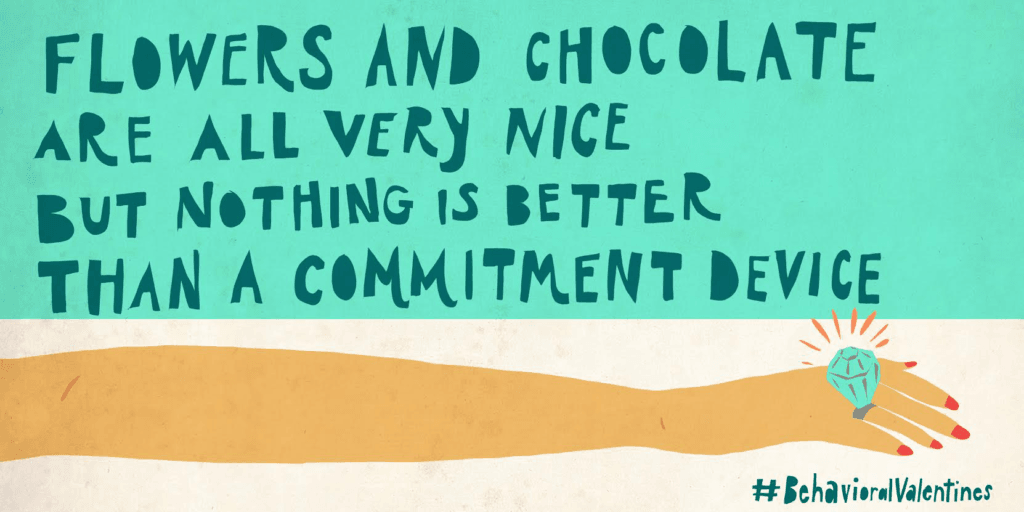3BI: Valentine's Day Edition
Welcome to my 3BI newsletter, where I share three insights from the world of behavioral science on psychology, decision-making, and behavioral change.
Did someone forward this newsletter to you? Sign up here to have every new edition delivered straight to your inbox.
Happy Valentine’s Day! This week’s insights focus on the psychology of love and romance for the holiday.

Satisfying relationships come from feeling “known”
Researchers have studied relationships for decades to assess what makes them work or struggle. One predictor of relationship satisfaction is “subjective relationship knowledge” — our personal perceptions, interpretations, and experiences within the relationship.
Two aspects of subjective relationship knowledge have shown to be particularly predictive of relationship satisfaction:
“Feeling known” - how well individuals believe their partner knows them
“Felt knowing” - how well they believe they know their partner
Which is more important for satisfying relationships, though? Feeling a deep connection with our partner or feeling that our partner has a deep connection with us?
Researchers at Cal-Berkley and the University of Chicago tested this by running seven different studies to examine those dynamics across various relationship types, including familial, romantic, and platonic connections.
They found higher levels of satisfaction in relationships where the person felt known by their partner compared to those where they felt they knew their partner well.
This was evident not just in relationships between romantic partners, but also with siblings, parents, and friends.
One way to look at these findings is that they reflect our human tendency to be somewhat selfish. “This is obviously a provocative idea because people would probably not explicitly admit to wanting relationship partners to focus primarily on them,” according to study co-author Juliana Schroeder.
We could also frame this as the need to be seen, though. “‘It’s good to be interesting. It’s better to be interested. We gravitate toward people who want to understand us. Feeling seen is core to feeling loved,” said Adam Grant regarding the findings. This is also supported by the study authors:
The perception of being known lays the groundwork for feeling supported, which in turn, enhances relationship satisfaction. This suggests that the pathway from feeling known to satisfaction is not merely about the knowledge itself but about the emotional and psychological support that perceived knowledge signifies.
Read the study here and a summary at Psychology Post.
Double dates can boost love for partners
Valentine’s Day plans tend to focus on quality time with our partners, but spending time with other couples may actually create a stronger boost in feelings for our significant others.
Researchers at Wayne State University studied the interactions of couples to evaluate how they impacted partners’ feelings towards each other:
In our first study, we found that couples that became close with another couple had greater feelings of passionate love toward their own romantic partners, compared to pairs of couples that engaged in non-emotional small talk and couples that did not interact with another couple. In our second study, we found that how much one couple makes another couple feel validated, cared for and understood — what psychologists call "responsiveness" — also predicted increases in passionate love.
Based on this research, we know that simply meeting another couple is not enough to boost passionate love. The interaction needs to involve discussing personal feelings, understanding each other and accepting each other. While more research is necessary to determine why couple friendships are good for a relationship, we think friendly and personal interactions with another couple leaves romantic partners feeling accepted and with a fresh, renewed perspective on each other.
So, if you’re looking for ways to enhance the love you share with your partner, consider going on double dates particularly in a setting where you can really get to know another couple well.
Read more here.
Romance grows with the economy
Love stories are one of the most common tropes in modern culture. Movies, TV, books, and music are all packed with tales of love, from fairy tales to romantic comedies.
This is somewhat of a modern phenomenon, though. Love’s depiction in culture has evolved with its role in society.
According to an analysis by French and Spanish cultural historians in Nature Human Behavior, the frequency and relative importance of romance and love have consistently increased in literary fiction over the past millennium across societies in Europe and Asia. Similar spikes had even occurred in earlier eras, like Ancient Greece, Rome and Classical India.
It appears that this growth in love-related content is linked with the economy: higher levels of economic development are strongly associated with a greater incidence of love in narrative fiction. For example, the most pronounced rise in the trend occurred after 1850, coinciding with the Industrial Revolution.
Why are we more romantic in times of increased economic development? The researchers found the increase was especially tied to improving living conditions and increasing life expectancy that progress with economic growth.
As basic survival needs are met, people are able to focus more attention on higher-level needs like love and self-actualization.
I’d also hypothesize that this stems from greater freedom for individuals to pursue love on their own terms, as economic growth tends to follow liberalism. Democracy typically leads to freer markets for thriving economies and individual liberty that allows people to pursue romantic love instead of settling for the practical partnerships or arranged marriages that were more common throughout history.
Read the study here.


